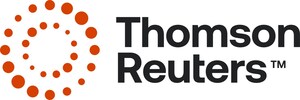Thomson Reuters Finds Increase in New Research for 'Neglected' Tropical Diseases
- Despite recent gains, research still lags well behind that of 'first world' diseases
PHILADELPHIA, June 19, 2012 /PRNewswire/ -- The Intellectual Property & Science division of Thomson Reuters today announced the publication of a new study tracking the current status of research on neglected tropical diseases. The Global Research Report Neglected Tropical Diseases analyzes research output across countries and fields from 1992-2011 and finds a two-fold increase in published literature focused on a group of diseases identified by the World Health Organization as underserved by public health services. Despite these recent gains, however, the total research output is still significantly less than that of "first world" diseases.
(Photo: http://photos.prnewswire.com/prnh/20120619/NY26881-INFO )
Though the analysis finds that research output focused on neglected tropical diseases has doubled from roughly 2,500 papers in 1992 to well over 5,000 papers in 2011, these totals still pale in comparison to other diseases such as cancer (85,000 papers), HIV/AIDS (16,000 papers) and coronary artery disease (15,000 papers). To put this in context, more than one billion people are infected with one or more neglected tropical diseases and more than half a million die each year from their infections, compared with ~35 million globally who are infected with HIV or the ~346 million afflicted with diabetes.
"Amidst high profile debate over the effectiveness of global health initiatives such as U.S. President Obama's Emergency Plan for AIDS Relief (PEPFAR), it is important for policymakers to understand the full scope of current research into diseases that affect a disproportionate amount of the world's population," said Jonathan Adams, director, research & development, Thomson Reuters. "Neglected tropical diseases affect more than one billion people around the world; we can only truly begin to direct solutions to this problem once we understand the current research landscape and start to develop programs that address gaps in it."
In addition to the aggregate bibliographic analysis, Thomson Reuters also reviewed research output by region and individual disease and suggests strategies for fostering increased neglected tropical disease focus. Following were the key findings:
- Brazil and India Show Steepest Growth in New Research: Though most research papers addressing neglected tropical diseases carry an author from one of the economies in the G7, Brazil and India have a surprisingly strong presence in the research arena. The nations publishing most often in neglected tropical disease research are the US, UK, Brazil and India.
- Dengue Research Shows Sharpest Rise Over Last 10 Years: The specific diseases cited most frequently in published research over the last 20 years are Soil Transmitted Helminthiasis, Schistosomiasis and Lymphatic Filariasis. Dengue research has shown the sharpest recent growth, nearly tripling in output between 2002 and 2011.
- Research Shows Evolution Toward Prevention and Treatment: Research into neglected tropical diseases has shown a notable spread across journal categories from core biomedical areas to fields relating to the ecology of the disease and the social and health environment in which these diseases are prevalent. This signals a shift towards solutions that move from studying the disease to creating remedies.
Data for this report was drawn from Web of Science database, available on the Thomson Reuters Web of Knowledge platform. The database covers over 100 years of research in more than 12,000 of the highest impact journals, and over 150,000 conference proceedings records from around the world.
View the Global Research Report Neglected Tropical Diseases.
View the infographic summarizing Neglected Tropical Diseases.
About Thomson Reuters
Thomson Reuters is the world's leading source of intelligent information for businesses and professionals. We combine industry expertise with innovative technology to deliver critical information to leading decision makers in the financial and risk, legal, tax and accounting, intellectual property and science and media markets, powered by the world's most trusted news organization. With headquarters in New York and major operations in London and Eagan, Minnesota, Thomson Reuters employs approximately 60,000 people and operates in over 100 countries. For more information, go to www.thomsonreuters.com.





Share this article